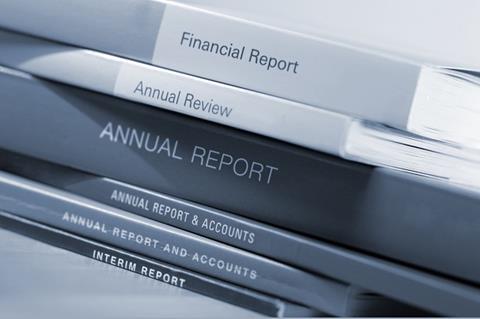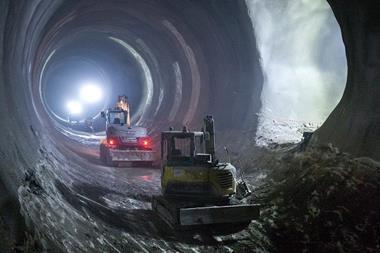The UK’s audit market is a “cosy club incapable of providing the degree of independent challenge needed”, said a House of Commons joint select committee enquiry into the collapse of construction company Carillion

The damning conclusions of a parliamentary enquiry into the collapse of construction firm Carillion include a proposed shake-up of the UK’s audit market.
The enquiry’s conclusions strongly criticised the so-called Big Four audit companies: Deloitte, KPMG, PwC and EY.
The UK’s audit market is a “cosy club incapable of providing the degree of independent challenge needed”, the House of Commons joint select committee enquiry found.
The probe blamed a lack of competition in the audit market, which it said “creates conflicts of interest at every turn”.
Carillion went into compulsory liquidation in January 2018; the construction firm had been a FTSE-250 listed company in the UK before its financial collapse in 2017.
The Big Four
KPMG provided external audit for Carillion, Deloitte provided internal audit, EY was tasked with overhauling the company’s practices, while PwC advised the company, its pension schemes, and the UK government on Carillion contracts.
External audit firm KMPG was “complicit” in the company’s “questionable” accounting practices, the enquiry warned, by its failure to question Carillion’s financial judgements and information.
The enquiry said KPMG’s “long and complacent” tenure of “cursory” audits at Carillion was not an isolated failure but “symptomatic of a market which works for the members of the oligopoly but fails the wider economy”.
Competitor Deloitte was paid over £10m to act as Carillion’s internal auditor but was “unable or unwilling” to identify “terminal failings” in Carillion’s risk management and financial controls, or “too readily ignored them”, according to the parliamentary probe.
Rival auditor EY was paid £10.8m for “six months of failed turnaround advice”, the enquiry said.
Fellow auditing provider PwC “benefited regardless of the fate of the company”, according to the enquiry, as advisors to government and to Carillion before its collapse, and as special managers after its liquidation.
Without measurable targets and transparent costs, the enquiry accused PwC of continuing to gain from Carillion, “effectively writing their own pay cheque, without adequate scrutiny”.
A spokesman for KPMG said it had conducted its audits of Carillion “appropriately”.
EY has said it was “disappointed that despite all efforts the business was not rescued”.
Deloitte said it was “disappointed” with the enquiry’s conclusions.
PwC said it was helping save “thousands of jobs” as Carillion’s official receiver.
The UK’s Chartered Institute of Internal Auditors said it will establish a new code of practice in response to the damning conclusions.
Time bomb
The enquiry also found successive UK governments “lacked the decisiveness or bravery” to address failures in corporate regulation.
Failures allowed Carillion to become a “giant and unsustainable corporate time bomb”, the parliamentary investigation concluded.
It called on the UK government to carry out an “ambitious and wide-ranging set of reforms” to “reset our systems of corporate accountability”.
The joint select committee found Carillion’s board “responsible and culpable for the company’s failure” presiding over a “rotten corporate culture” that led to the company’s devastating and hugely costly failure.
Carillion company directors’ “aggressive” accounting practices had “no place in a healthy audit”, a major shareholder of the firm complained.
Despite clear accountability, company directors presented themselves in Parliament as “self-pitying victims of a maelstrom of coincidental and unforeseeable mishaps”, the enquiry said.
Carillion’s rise and fall was a story of “recklessness, hubris and greed”, its business model “a relentless dash for cash, driven by acquisitions, rising debt and exploitation of suppliers”, the enquiry concluded.
Accounting tricks meant Carillion had recognised revenue that clients had not yet agreed or signed off, painting a falsely optimistic picture of the company’s books, the enquiry noted.
“Same old story. Same old greed,” said Frank Field, a Labour Party member of parliament and the chair of the work and pensions committee, one of two parliamentary committees that worked on the enquiry.
“KMPG, PwC, Deloitte and EY pocket millions of pounds for their lucrative audit work - even when they fail to warn about corporate disasters like Carillion,” said Rachel Reeves, Labour MP and chair of the business, energy and industrial strategy committee, the other body behind the enquiry.
“It is a parasitical relationship which sees the auditors prosper, regardless of what happens to the companies, employees and investors who rely on their scrutiny,” said Reeves.
“The Competition and Markets Authority must now look at the break-up of the Big Four accountancy firms to help increase competition and deal with conflicts of interest,” she added.
Code of practice
The UK’s Chartered Institute of Internal Auditors expressed disappointment in the enquiry’s view that internal audit did not perform its function effectively.
“The joint select committee inquiry into the Carillion collapse has raised some fundamental questions about the role of internal audit in our corporate entities,” said Ian Peters, chief executive of the Chartered Institute of Internal Auditors.
“The Chartered Institute of Internal Auditors welcomes such scrutiny,” said Peters.
“The institute will now work to establish a code of practice for all sectors to help ensure that internal audit focuses on the risks that matter most,” he said.
“Ultimately, it is the board that decides whether to act on the recommendations of internal audit, so it is critical too to have the support and engagement of boards and audit committees in order to establish effective internal audit functions,” Peters added.




















No comments yet